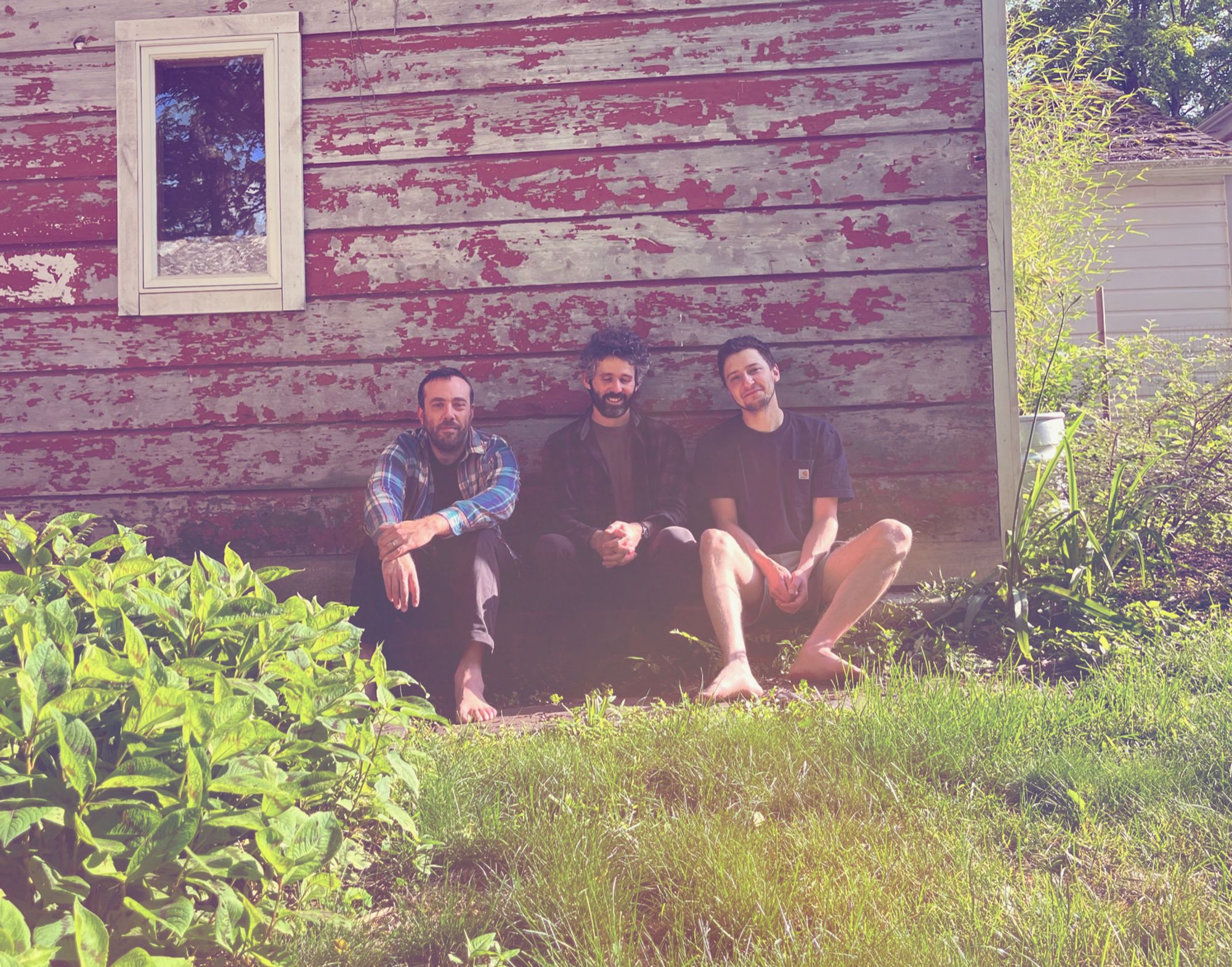
False Harmonics #21: Cowboy Sadness, Jason Nazary & Kieran Daly (Duo)
Cowboy Sadness (a collaboration between The Antlers, Bing & Ruth, and Port St. Willow) bring their expansive ambient soundscapes to Pioneer Works on November 12th as part of the False Harmonics series on a program with the improvised duo of Jason Nazary and Kieran Daly.
Cowboy Sadness formed organically after David Moore (Bing & Ruth) was introduced to Peter Silberman (The Antlers) and Nicholas Principe (Port St. Willow) by a mutual friend in Brooklyn, NY in 2011. While each member was pursuing their own individual projects at the time, there was an immediate affinity for one another, a shared passion for seeking new sounds and a collective desire to create together.
Shortly after meeting, Nicholas, Peter & David began holding epic, days-long improvisatory sessions, capturing the performances on a simple handheld field recorder. Cowboy Sadness became a release valve, a place to return to the purity of creating for creation’s sake; making a kind of music free of expectations and commercial pressure.
By 2017, all three had independently migrated to Upstate New York. Sharing a long-held intention to create an album, they set up to properly record their sessions in the more open surroundings that an escape from the city provided. In total, they amassed around 20 hours of music.
Over the course of several week-long mixing sessions they began the laborious task of editing down the recordings into a cohesive statement; one that still captured the space, momentum and spirit of the original sessions, but with the thoughtful editing and structure of traditional songwriting.
Selected Jambient Works Vol.1 is the summation of over a decade of work. The album is atmospheric yet incredibly approachable, with sounds more akin to Pink Floyd and Can than John Cage.
The stylistic signatures of each member are undeniable throughout: Moore’s heavy, undulating organs, Silberman’s melancholic guitars, and Principe’s galloping, hypnotic drums travel together in easy synchronization before being subsumed into thick quicksand textures, eventually giving way to cavernous space. Upon reaching momentary silence, the band coalesces again, locking into a deep groove until overtaken by the next windstorm.
And these kinds of images are continually evoked across the album— a cattle stampede in “Billings, MT”, a band of night-stalking coyotes in “Ten Paces”, and the desolate feeling of being the only person within earshot, via the album’s somber closer, “The Cowboy Way”.
Cowboy Sadness’ sprawling debut is an odyssey through vivid, mercurial environments for the listener to inhabit continuously, unpeopled landscapes where signs of life are rare, but exquisite when uncovered.
Jason Nazary & Kieran Daly (Duo)
Jason Nazary - drums, electronics
Kieran Daly - guitar
Jason Nazary is a drummer and composer from Atlanta, based in Brooklyn. Fascinated by the intersection of acoustic and electronic music, he uses the drums as a trigger and control source for a collection of synthesizers and sequencers.
Kieran Daly is an American composer and guitarist with concentration in experimental monophonic music and professional background in jazz, analog & digital signal processing, and as a session musician. His work focuses on a skeptical, first-principles approach applied across multifarious formal contexts using iterative processes, microtuning and sliding, and pulse salience as morphological determinants.